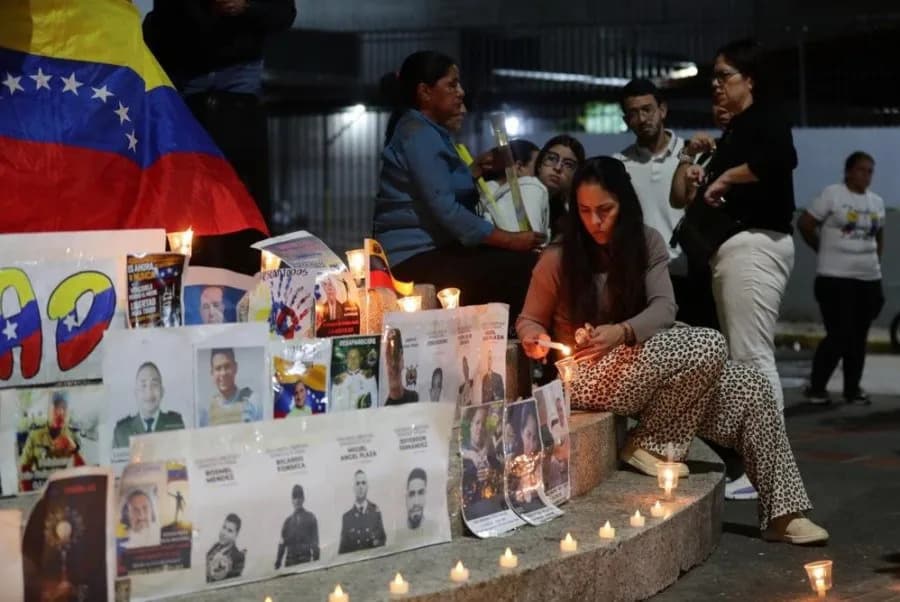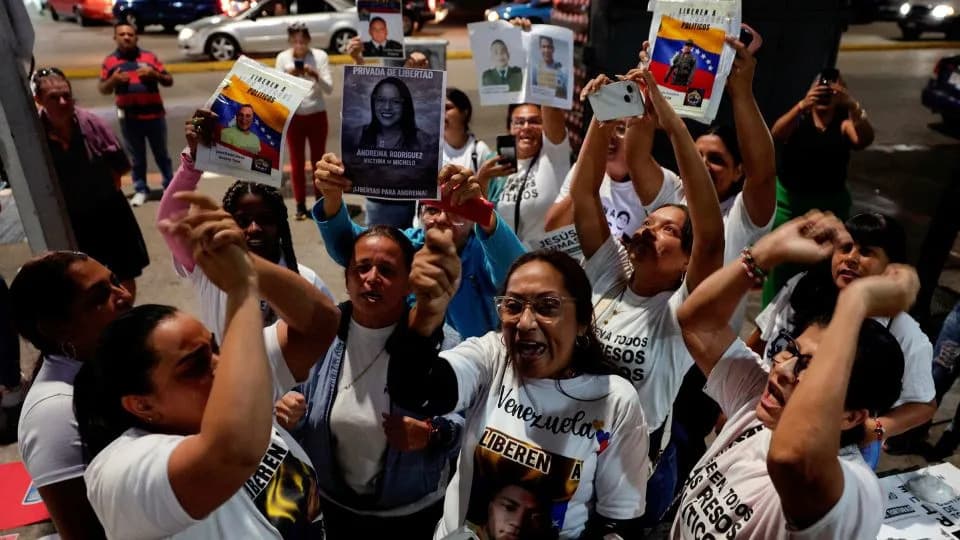Venezuela has repurposed VenApp, a platform launched in 2022 for reporting utility faults, into a nationwide tip line that asks citizens to report 'suspicious' people or activity. Human rights groups warn this shift threatens privacy, chills dissent and could enable political detentions; Apple and Google removed the app from their stores in August 2024. The change comes amid heightened tensions with the U.S., including reported CIA authorizations and U.S. military deployments in the southern Caribbean. Critics say the app exemplifies how everyday technology can be turned into a tool for surveillance and repression.
Maduro Repurposes VenApp as Nationwide Tip Line, Sparking Privacy and Rights Concerns

Maduro repurposes VenApp amid fears of foreign intervention
Venezuela's government has transformed VenApp — a mobile platform originally introduced in 2022 to report utility outages and send messages — into a nationwide tip line that encourages citizens to notify authorities about 'suspicious' people or activity. The shift has alarmed opposition groups, civil society and international rights organizations, which warn the tool could deepen surveillance, chill dissent and increase politically motivated arrests.
Background. VenApp was launched in 2022 as a hybrid service combining messaging with a helpline for reporting problems like power cuts and water disruptions. In August 2024 the app was removed from Apple and Google app stores after human rights groups raised concerns that it could be misused to target protesters and political opponents. The government, however, kept the service running for existing users and provided a browser-based version.
Recent changes. Facing heightened tensions with the United States — including the Trump administration's reported authorization of CIA operations in Venezuela and U.S. military deployments to the southern Caribbean — President Nicolás Maduro asked the armed forces to help build 'a new app, so that the people can safely report everything they hear, everything they read.' The update arrived within a week and the interface now invites users to flag drones, 'suspicious people' and other perceived threats.
'This initiative represents a serious concern for privacy, freedom of expression, and security, because it promotes a system of social vigilance and the militarization of public order,' said the activist group Venezuela Sin Filtro.
Human rights organizations such as Amnesty International warned that the app could be used not only to curb freedom of expression and peaceful assembly but also to facilitate unlawful arrests and detentions. Legal monitoring group Foro Penal reports that more than 800 people are currently detained for political reasons; the government denies holding political prisoners.
Reactions on the ground. CNN obtained a rare look at the app in Caracas. Some government supporters say VenApp works well to resolve utility problems and that they would use it to protect the country if they believed it faced foreign attack. One resident of a Caracas neighborhood, who spoke anonymously, said he would not hesitate to report others if he felt Venezuela was under threat.
Opponents and many ordinary citizens expressed fear about the app's chilling effect. 'I would never even dream of downloading it. It’s scary that there’s now an app for citizens to denounce each other,' an opposition supporter told CNN on condition of anonymity. A private-sector media worker added: 'How do we know the app is not spying on you? This is a government that spies on its people.'
Context and implications. The move to repurpose VenApp comes as U.S. military assets, including warships, fighter jets and up to 10,000 troops, operate in the southern Caribbean — activity Washington says targets drug trafficking but which regional critics say raises risks of overreach. The controversy around VenApp highlights broader concerns about digital surveillance, the erosion of civic space and the risk that ordinary technologies can be turned into tools of political repression.
What to watch. Monitor whether use of the app correlates with increased reports, detentions or prosecutions tied to political activity; whether the government publishes transparency or privacy safeguards; and whether independent observers can access audits of the app's data collection and handling practices.
Help us improve.


































